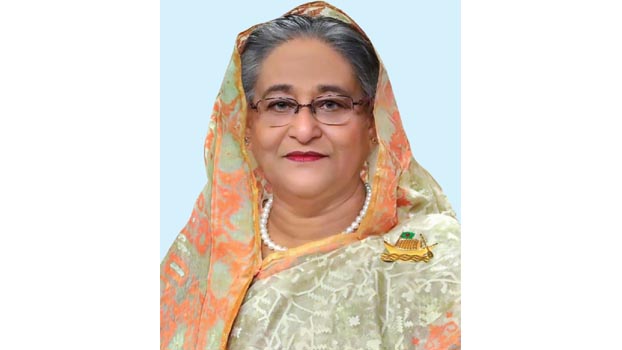Bangladesh’s graduation
Leadership makes the difference

It is leadership and stable politics as well as government policies which paid off, analysts say as Bangladesh’s graduation from the LDC remains a miracle for many.
In 2008-09 when the ruling Awami League first came to power after 1996, the Bangladesh GDP was $103.5 billion. A decade later, it rose to $330.2 billion in 2019-20.
Export earnings also rose to $40.54 billion from $15.57 billion during the period while foreign currency reserves also increased to $44.03 billion from only $7.47 billion in 2008-09 as the country witnessed a decade of change and transformation.
The growth did not come alone. It also helped to cut the poverty rate to 20.5 percent from 48.9 percent in 2001. Life expectancy rose to 72.6 years from 69.61 years. Electricity production increased to 24,421 megawatt from 5,271 megawatt.
“Its leadership that made the difference, I must say,” Prof Md Roshidul Hasan, President of One Bangladesh, an organisation of professionals that keeps an eye on Bangladesh’s socio-economic and political developments, told Bangladesh Post.
The United Nations recently announced Bangladesh’s graduation from a least developed country (LDC) to a developing country.
“It (graduation) was only possible due to Prime Minister Sheikh Hasina’s dedication to the nation, visionary leadership and her hard work,” he said, adding that the story began in 2008 when the ruling Awami League gave a ‘charter for change’ before the election with a slogan ‘Digital Bangladesh’.
“If you look back, you will see after being elected the party tried to implement each and every point they pledged before the election. And that’s why today we can proudly say that we have graduated from the LDC bracket,” he said.
“I think Bangladesh has not only graduated to a developing country but graduated with distinction as Bangladesh is well ahead in major indexes such as GNI (The Gross National Index), HAI (The Human Assets Index), and EVI (The Economic Vulnerability Index),” said the professor.
“If we look back in the year 2008-2009 and compare with the progress in the year 2019-2020, it depicts the unbelievable progress in all sectors including GDP, export earning, foreign exchange reserves, poverty and extreme poverty rate, electricity, agricultural production and even increases average lifespan,” he said.
“I strongly believe if this government continues then no one can stop this massive progress,” he said, adding that, “Due to the political stability, the government could implement the policies consistently. There was no change of policies since the same party was in power for the last 12 years. So the focus was always on development and to be a middle-income country by 2021.”
On the occasion of Bangladesh’s graduation, UN Secretary-General António Guterres in a message said: “This is a clear signal that the country is building an inclusive and thriving economy, with a commitment to lifting millions of people from poverty and hunger.”
He also commended Bangladesh’s achievements in women’s empowerment and access to education.
“Graduation is a milestone. Strong vision, national leadership, and sound policies, and programs will be crucial as Bangladesh strives to become a middle income country and implement the 2030 Agenda for Sustainable Development,” he had said, adding that the UN would continue to support Bangladesh in this journey.
Wall Street Journal on March 3 also reported that Bangladesh is becoming South Asia's “economic bull case”. It also found Bangladesh to be the ‘closest proxy’ for the successful development models seen at various stages in South Korea, China, and Vietnam.
“Bangladesh was once said to be a bottomless basket, but now rose to prominence as a developing country in just 50 years of its existence. This is a fairy tale. It has been possible only in Bangladesh,” Prof Dr Md. Shah Azam, Department of Marketing, Rajshahi University, told Bangladesh Post in a written comment, when asked.
“It has been possible only because of the visionary leadership of the present Prime Minister of Bangladesh, proud daughter of the Father of the nation Bangabandhu Sheikh Mujibur Rahman, our great leader HPM Sheikh Hasina.”
He said: “Bangladesh is moving forward at a breakneck pace. Once upon a time, Bangladesh meant a country of hunger and poverty to the world, but the people's leader Sheikh Hasina has changed Bangladesh. The world now respects the change and the way she made the changes.
“In Bangladesh, where the poverty rate was 48.9 percent in 2001, it has come down to 20.5 percent in 2019. Similarly, the rate of extreme poverty decreased from 34.3 percent to 10.5 percent in the year 2019. The development in education, women empowerment and many other socio-economic indicators are also alike. Bangladesh has made remarkable progress in the last 10-12 years which ensures Bangladesh's graduation to a developing nation.
“I must thank the Prime Minister. We would like to see Bangladesh as a developed country under your prudent and pro-people leadership,” he said.
Prof Dr. M. Kamruzzaman, Department of Agricultural Economics, Bangabandhu Sheikh Mujibur Rahman Agricultural University, also feels the same way.
“The time demanding monetary policy, ensuring food and nutrition security status, improvement of health care facilities through community clinic facilities and incentives on agriculture, fisheries and livestock has made this tremendous job possible,” he told Bangladesh Post.
“The incentives on export earnings specially facilitating the garment industry also create a positive impact on export earnings of the country. The per capita income has increased at $2162 in 2021 from around $500 in 2007. The increment of per capita income reduces the poverty and extreme poverty level significantly,” he added.





